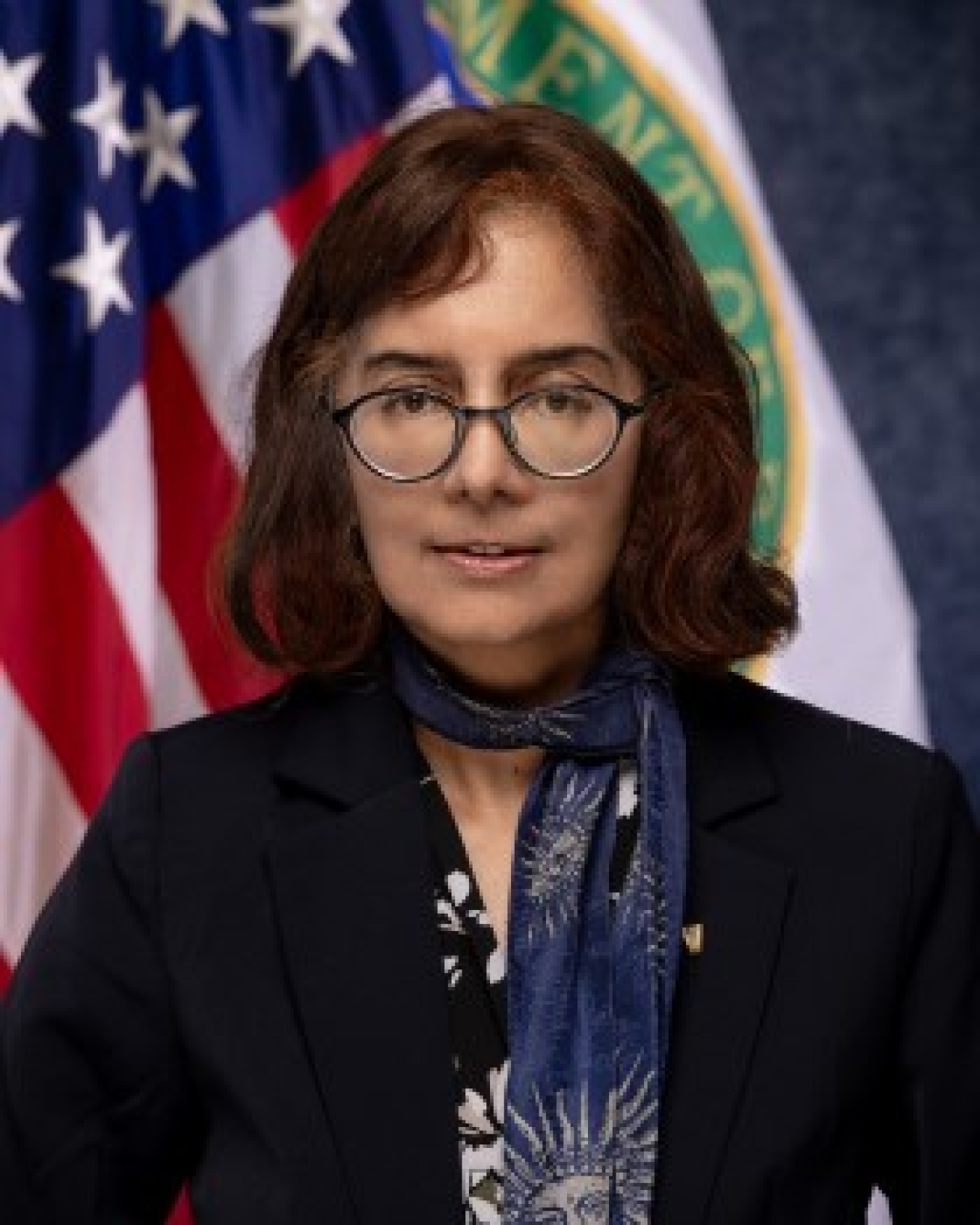DOE and stakeholders worldwide will be commemorating Hydrogen and Fuel Cell Day on Oct. 8 with announcements and virtual events throughout the week.
Hydrogen and Fuel Cell Technologies Office
October 5, 2020
The sixth National Hydrogen and Fuel Cell Day will take place on October 8, 2020, and we hope you'll join the U.S. Department of Energy's (DOE's) Office of Energy Efficiency and Renewable Energy's (EERE's) Hydrogen and Fuel Cell Technologies Office in celebrating advances in hydrogen and fuel cells.
Aptly chosen to represent hydrogen's atomic weight of 1.008, DOE and stakeholders worldwide will be commemorating Hydrogen and Fuel Cell Day on October 8 with announcements and virtual events throughout the week.
Hydrogen and fuel cells have come a long way! Interest is ramping up across multiple end-uses, including trucks, maritime, rail, the grid, and industrial processes where the integration of hydrogen and fuel cells can add economic, environmental, and energy resiliency benefits. The amount of fuel cell power shipped just surpassed 1 gigawatt, a third of a million stationary fuel cells are powering global operations, and more than 470 hydrogen stations are serving 25,000 fuel cells cars worldwide.
In the United States, more than 35,000 hydrogen fuel cell forklifts help move goods at supermarkets, warehouses, and logistics facilities, and 500 MW of stationary fuel cell power ensures cell phone towers and other critical loads stay on. Large-scale hydrogen-use applications are gaining momentum, and activities that demonstrate the value of integrating hydrogen and fuel cell systems in data centers, ports, and in steel making are ramping up.
While we've made significant progress as a community, the work doesn't end here. We need to work together to overcome cost, volume, and technology obstacles to unlock the full potential of hydrogen and fuel cells. At DOE, we are doing this through a number of areas including H2@Scale—a vision to enable affordable hydrogen generation, transport, storage, and use in the United States. As we drive down costs through H2@scale research at labs and demonstration activities with industry, hydrogen can more successfully be integrated into our economy and play a substantial role in emissions reductions and energy resiliency across multiple sectors.
We are not alone in this effort. Many countries and regions released roadmaps that highlight the role hydrogen plays in their energy future. Global initiatives, including the International Partnership for Hydrogen and Fuel Cells in the Economy (IPHE), the Clean and Hydrogen Energy Ministerials, the International Energy Agency, and Mission Innovation are bringing countries together to share lessons learned and accelerate progress.
As October 8 approaches, we invite you to explore some of the resources on our website and use them to increase awareness about how far hydrogen and fuel cells have come and what more needs to be done.
We encourage you to celebrate with us and offer some suggested activities:
- Follow EERE on Facebook, Twitter, and LinkedIn and share our social media posts on hydrogen and fuel cells using #FuelCellsNow and #HydrogenNow.
- Increase your H2IQ by tuning in to the H2IQ Hour on October 8, which will highlight three H2@Scale demonstration projects in the U.S.
- Test your H2IQ by taking the hydrogen and fuel cell quiz and challenge your friends to do it as well!
- Learn about the types of jobs you can find in hydrogen and fuel cells by using the career map.
- Keep up with global hydrogen and fuel cells activities by following @The_IPHE.
We hope you'll join us in spreading the word so that others can also learn why hydrogen and fuel cells are important to a more secure, clean, and resilient energy future.
To learn more about hydrogen and fuel cells, and the research and development work DOE supports to accelerate progress in this exciting technology, please visit our website.
Sunita Satyapal

Sunita Satyapal is the Director for the U.S. Department of Energy's (DOE's) Hydrogen and Fuel Cell Technologies Office and coordinates activities across offices for the U.S. DOE Hydrogen Program. She is responsible for more than $1.6 billion in hydrogen and fuel cell research, development, demonstration, and deployment (RDD&D) activities within the office and for coordinating more than $9.5 billion in hydrogen activities across DOE. In addition, she led the development of the national clean hydrogen strategy and roadmap and serves as the Director for the Hydrogen Interagency Taskforce, which includes a dozen agencies and is co-chaired by the Deputy Secretary of Energy and the White House Deputy National Climate Advisor. She has more than two and a half decades of experience across industry, academia, and government, including at United Technologies managing RDD&D and business development, and as a visiting professor.
Sunita also coordinates international hydrogen activities as Vice-Chair of the International Partnership for Hydrogen and Fuel Cells in the Economy, a partnership among over 25 countries to accelerate progress in hydrogen and is the U.S. co-lead for hydrogen efforts within the Clean Energy Ministerial and Mission Innovation. She received her Ph.D. from Columbia University and did postdoctoral work in Applied and Engineering Physics at Cornell University. She has numerous publications, including in Scientific American, 10 patents, and several recognitions including a Meritorious Presidential Rank Award in 2015, a Distinguished Presidential Rank Award in 2022, and selected as an Ambassador for C3E, the Clean Energy Education & Empowerment Initiative, to advance the leadership of women in clean energy.
Vanessa Arjona

Vanessa Arjona is an operations manager in the Hydrogen and Fuel Cell Technologies Office (HFTO). In her role, she oversees communications, outreach, and international collaboration projects to increase understanding and awareness of hydrogen and fuel cell technologies, including their role supporting a clean and sustainable energy future for all Americans.
Born and raised in Colombia, Vanessa moved to the U.S. as a teenager with her family but has spent most of her life in Washington D.C. She is a graduate of the George Washington University’s Environmental & Energy Management Program in the School of Engineering and Applied Science.
When Vanessa is not in the office, she is likely planning the next trip to a new country alongside her husband, teaching a dance cardio class in Bethesda, or running on the Capital Crescent Trail.

